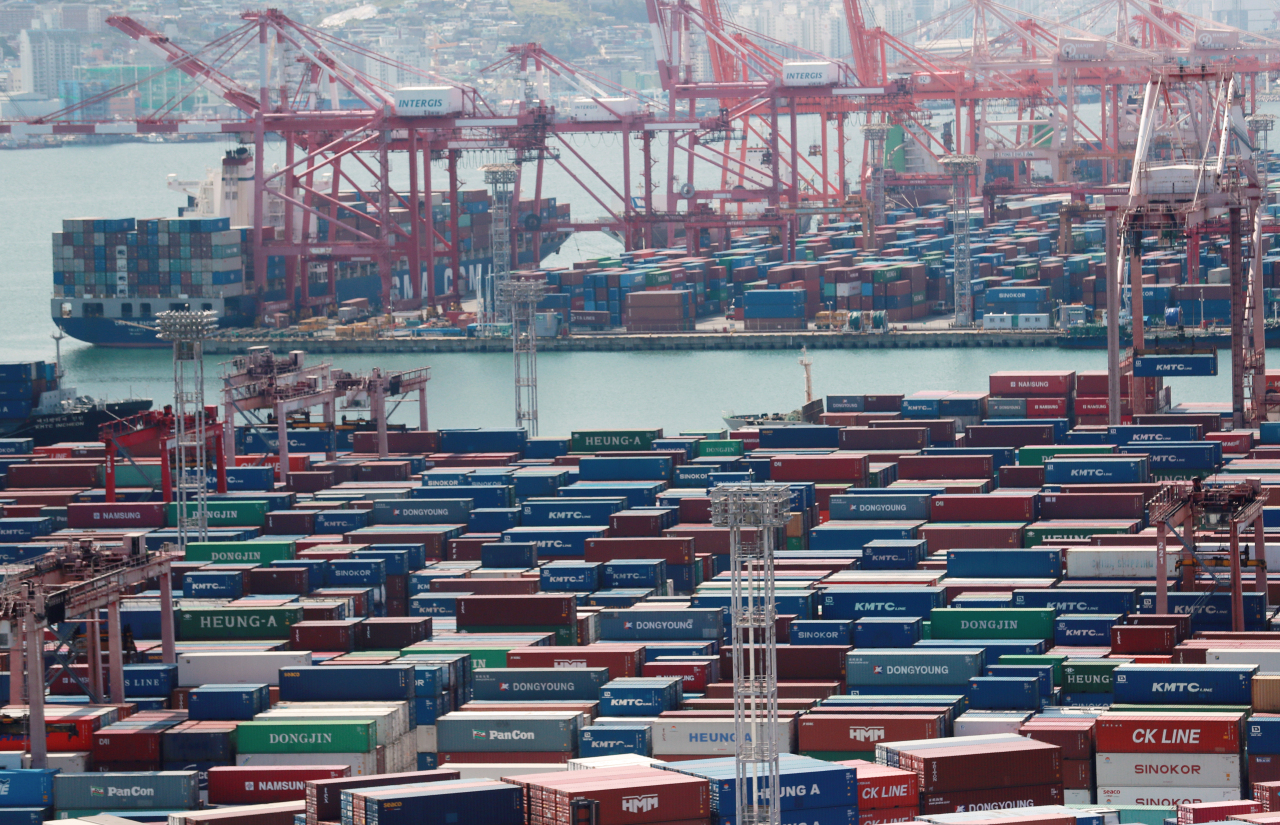S. Korean economy faces heightened external economic risks: KDI
By YonhapPublished : Feb. 9, 2022 - 13:34

The South Korean economy is on a recovery track, but external economic uncertainty remains high amid soaring energy costs and monetary policy shifts by the US Federal Reserve, a state-run think tank said Wednesday.
The manufacturing industry has extended solid growth and the latest spike in COVID-19 cases appears to have had limited impacts on the service sector, compared with previous waves of the pandemic, the Korea Development Institute (KDI) said in a monthly economic assessment report.
"However, a continued rise in raw material prices and unstable financial markets indicate economic uncertainty remains high," the report said.
The South Korean economy is on a recovery path on the back of robust exports of chips and autos. Asia's fourth-largest economy expanded 4 percent last year, the fastest growth in 11 years.
Private spending gained ground in the fourth quarter despite the upsurge in COVID-19 cases in the latest sign that the negative impact by the pandemic on the service sector appears to have declined.
Private spending grew 1.7 percent in the fourth quarter of last year from three months earlier, a turnaround from a 0.2 percent on-quarter fall, according to central bank data.
But external economic risks have increased amid surging oil prices and uncertainty about monetary policy normalization by the Fed.
South Korea's exports rose 15.2 percent on-year in January to a monthly record high of $55.32 billion. But the country logged the largest trade deficit last month as a hike in oil prices raised import bills.
Oil prices have spiked on tight supplies and escalating geopolitical tensions between Russia and Ukraine.
Dubai crude, South Korea's benchmark, soared to $90.91 per barrel Monday, up from $77.12 at the endof last year. South Korea depends mainly on imports for its energy needs.
Volatility in the financial market has also increased amid the prospects that the Fed is likely to accelerate its monetary tightening.
The Korean currency has sharply fallen against the US dollar in recent months with the won dropping to a 19-month low of 1,206.40 per the greenback on Feb. 3. Yields of three-year government bonds rose 6.6 basis points to 2.303 percent Tuesday, the highest in nearly four years.
The Bank of Korea expects the South Korean economy to increase 3 percent this year after the 4 percent growth last year. The finance ministry puts its 2022 economic growth outlook at 3.1 percent. (Yonhap)



















![[Today’s K-pop] BTS pop-up event to come to Seoul](http://res.heraldm.com/phpwas/restmb_idxmake.php?idx=642&simg=/content/image/2024/04/17/20240417050734_0.jpg&u=)